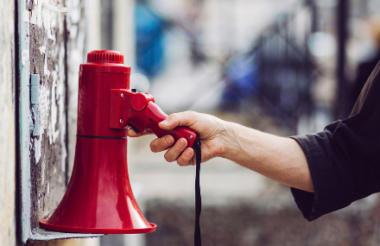The last few weeks have been emotionally draining. With the awful news of Sarah Everard’s murder, the treatment of participants at her vigil by police, parliament’s passing of the second reading of the police, crime, sentencing and courts bill, and the consequent violent protests in Bristol, it seems as if 2021 not only wants to pick up where 2020 left off but also to double down on its egregious intent.
For the charity sector, things have been similarly bleak. Bullying and harassment exposed at NCVO; accusations of bullying and anti-union practices at St Mungo’s by Unite; racism uncovered in Barnardo’s fundraising department; and a resurgence of accusations of sexual harassment within the fundraising community. At times, the last month has been hard to stomach. For those victims, friends and families involved, the struggle is unimaginable.
If there is something to take forward from this dire period, it is the power and determination of people to make change happen. Instead of dwelling on pain, individuals have taken action – by taking to the streets, by making their voices heard and by being willing to stick their head above the parapet. This is what hope looks like.
People also gave money to these causes and saw fundraising not only as a way to register their feelings but also to protest. More than £530,000 has been raised by the #ReclaimTheStreets campaign for women’s charitable causes in memory of Sarah Everard. And a Pregnant Then Screwed appeal, which sought to raise funds to mount a legal challenge arguing that the government’s Covid-19 financial support scheme for self-employed people discriminates against working mothers, hit its fundraising target in under 24 hours.
Charities and fundraisers can be the best of these efforts and must continue to harness their power to raise funds in order to make the change people need to see happen. It’s up to the sector to lead by example and it cannot miss this opportunity.
@stevejcotterill
Related articles
Stephen Cotterill: The virtual event experience has its benefits
Face-to-face conferences still seem a long way off, but the virtual event experience has its benefits.
Stephen Cotterill: Collaboration doesn’t necessarily mean consolidation
It might seem counterintuitive, but working with your closest competitors offers opportunities, writes Stephen Cotterill.
Stephen Cotterill: Our funding system is not fit for supporting diverse communities
It is a sad indictment that it has taken a global pandemic and an international race equality movement to force funding to change.












